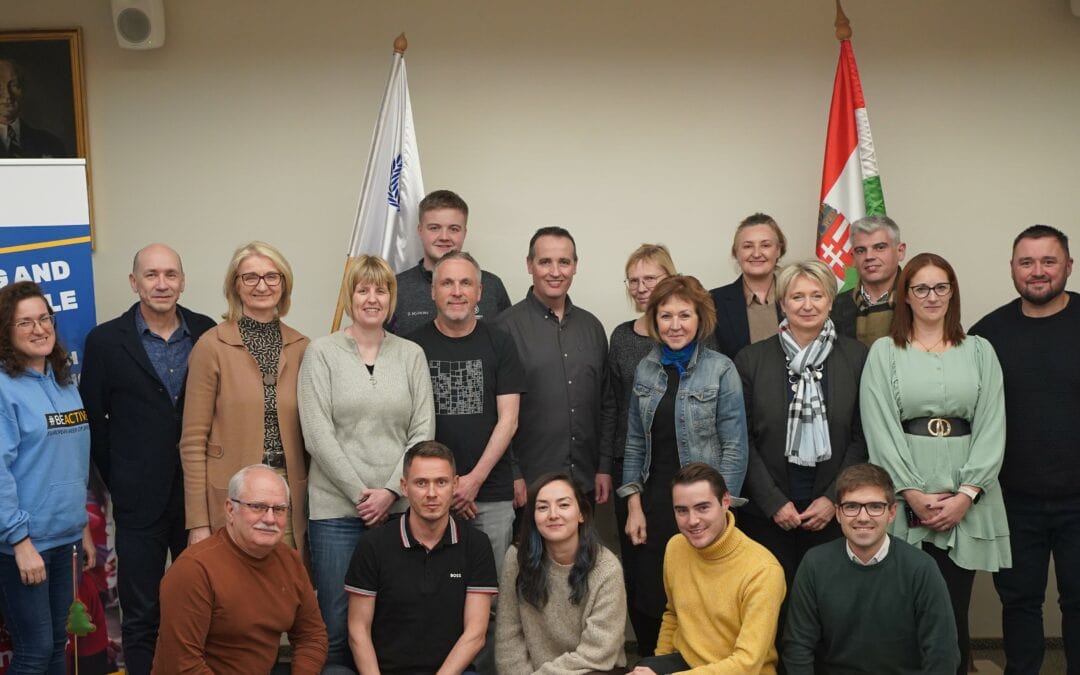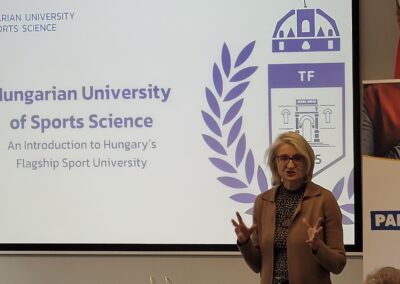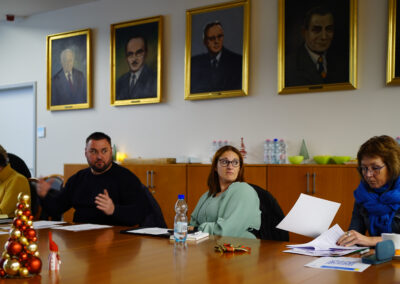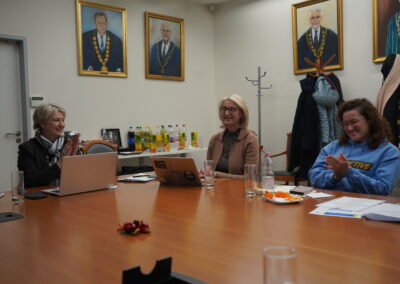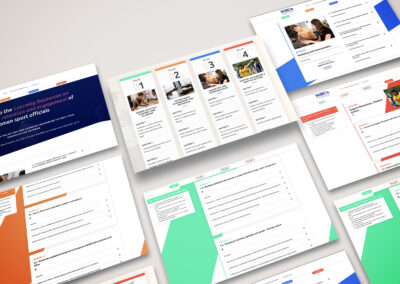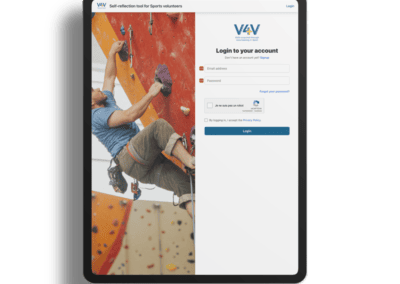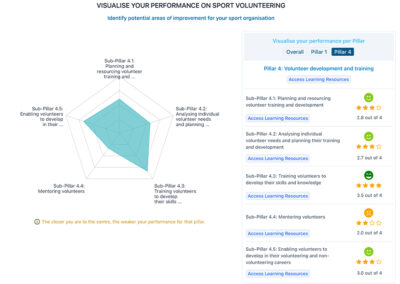All good things come to an end, and there is always a degree of sadness for those involved. This was certainly the case for the partners in EOSE’s V4V project (full title Analysing and Making Visible the Skills Acquired Through Sport Volunteering in Europe) when they gathered for their final partner meeting hosted by the Hungarian University of Sports Science in Budapest on 12 December 2023.
The 13 partner organisations had worked together tirelessly over three years to produce an impressive research report, Sport Volunteering in Europe: Realities, Opportunities and Challenges, and two innovative online tools to support sport volunteering. Meeting four times in person, twice online and collaborating on many occasions in smaller working groups, the partners not only created some really desirable products but also formed close and fruitful transnational relationships which will last for many years into the future.
V4V was co-funded by the European Union’s Erasmus+ sport programme and addressed the vital topic of sport volunteering in Europe and how it can be improved so that sport organisations can become more effective in the way they engage volunteers and volunteers themselves can become more satisfied and productive in their volunteering roles. The consortium comprised 13 partners with representation from seven different countries and organisations with European and global reach.
The final partner meeting gave the partners the opportunity to review the project’s products, in particular the two innovative interactive online tools: a self-evaluation toolkit for sport organisations to help them assess their strengths and weaknesses in regard to volunteering and a self-reflection tool for sport volunteers themselves which would help them identify the competencies, skills and personal qualities they have developed through sport volunteering experiences. The partners also made final preparations for the first ever European Sport Volunteering Summit which was held the following day and attracted 65 stakeholders from across Europe.
The final partner meeting gave the partners the opportunity to review the project’s products, in particular the two innovative interactive online tools: a self-evaluation toolkit for sport organisations to help them assess their strengths and weaknesses in regard to volunteering and a self-reflection tool for sport volunteers themselves which would help them identify the competencies, skills and personal qualities they have developed through sport volunteering experiences. The partners also made final preparations for the first ever European Sport Volunteering Summit which was held the following day and attracted 65 stakeholders from across Europe.
Of special importance for this final meeting was the sign-off of the project’s Implementation and Sustainability Action Plan, prepared by the International Sport and Culture Association and the Portuguese Institute of Sport and Youth. This plan lays out recommendations and priority actions for the next three years, covering the dissemination and implementation of the V4V products through the partner’s organisations and networks which also includes the design of a marketing plan led by Leeds Beckett University, World Rugby and the UK’s Sport and Recreation Alliance.
But it was not all sadness! The partners met in the evening for a dinner to celebrate everything the project had achieved over 36 months, and all partners expressed a strong commitment to continue to collaborate informally in the future or perhaps formally through a new volunteering project with even greater ambitions.
>> Reflections
Reflecting on the three-year project, Aurélien Favre, EOSE Executive Director said,
“It was an absolute honour and privilege for both EOSE and myself to manage and collaborate such a dedicated and enthusiastic group of partners! The collective effort invested in the V4V project has been monumental, and we should all be proud of the innovative and remarkable achievements made in the field of sport volunteering. The high-quality outputs that have been produced are a testament to the invaluable contributions of each partner involved.
The V4V project marks not just an accomplishment but the initiation of a journey. As we reflect on these achievements, we are already identifying logical next steps that we anticipate implementing with our esteemed partners. Together, we’ve laid the foundation for impactful work in the sector, and we are all excited about the next steps.”
About V4V
This three-year EU Erasmus+ Sport cooperation partnership aimed to provide practical solutions to some key challenges in the world of sport volunteering. There is substantial evidence over many years that volunteers are vital to sport.
They give freely of their time and energy, but they also gain much informal learning through their voluntary work. One of V4V’s founding principles was that, if there is a way to make these skills and competences visible, this could be a powerful incentive to engaging more volunteers.
As appropriate to the ambitions and needs of individual volunteers, making their skills and competences visible could also ease their transition into paid employment, help career progression and begin to address some of the sectoral skill shortages which other research, such as EOSE’s ESSA-Sport project has revealed. Another challenge is that sport volunteering is in decline, and it is vital we do more to care for and retain sport volunteers and make better use of what they can contribute.
With the support of 13 high profile expert partners from the European sport sector, V4V provided the following outputs:
- A Research Report on realities and challenges of Sport Volunteering
- A digital toolkit for volunteer recruitment, retention and management
- An online competency-based self-reflection tool so volunteers can identify and showcase skills and competences gained through volunteering experiences
- The first ever European Sport Volunteering Skills Summit
Full list of partners:
- European Observatoire of Sport and Employment (EOSE) – France/ EU
- International Sport and Culture Association (ISCA) – Denmark / Global
- European Volunteer Centre (CEV) – Belgium / EU
- World Rugby – Ireland / Global
- International Judo Federation Academy Foundation (IJF) – Malta / Global
- Romanian Football Federation (FRF) – Romania
- Finnish Athletics Federation (SUL) – Finland
- Sport and Recreation Alliance (SRA) – United Kingdom
- Portuguese Institute of Sport and Youth (IDPJ) – Portugal
- Estonian Foundation of Sports Education and Information (FSEI) – Estonia
- National Institute for Sport Research (NISR) – Romania
- Hungarian University of Sports Science (HUSS) – Hungary
- Leeds Beckett University (LBU) – United Kingdom
